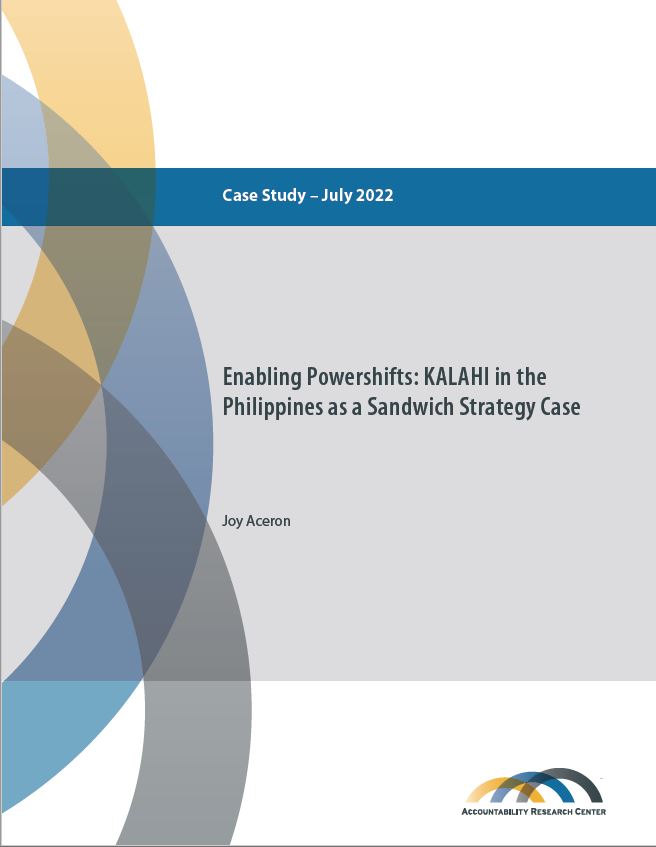
Enabling Powershifts: KALAHI in the Philippines as a Sandwich Strategy Case
Date: July 2022
Author(s): Joy Aceron
Publication type:
Published by: Accountability Research Center
“Sandwich strategies” are interactive processes in which reformers in government take tangible measures that reduce the risks of citizen action from below, driving virtuous circles of mutual empowerment between pro-accountability actors in state and society. This case study is one of a set of 18 published here, which are among those included in comparative analyses of whether and how sandwich strategy initiatives drive institutional change.
The Comprehensive and Integrated Delivery of Social Service – National Community-Driven Development Program (KALAHI) is a national participatory poverty alleviation program in the Philippines which began in 2003. Initially targeted to low-income rural municipalities and eventually scaling up nationwide, KALAHI was led by a reformist Secretary of Social Welfare who had been a CSO leader, and funded by the World Bank and the Millennium Challenge Corporation. The program encouraged collective action by recruiting tens of thousands of community volunteers, and convened municipal councils of elected village leaders who reviewed community proposals to make project funding decisions.
This case study of KALAHI argues that this participatory structure – and in particular the “sandwich strategy” dynamic of top-level support from actors in the Philippine government and the mobilization of civil society from below – was integral to the successes KALAHI achieved. It further argues that KALAHI clearly enabled power shifts at the local level, leading to considerable gains – though local elites dominated the program in some areas.
However, the shift of power to citizens and communities cannot be considered enduring, as it remains dependent on the continuation of the KALAHI program and on the local political context. Large-scale impact evaluations did not find evidence of enduring power shifts, either in terms of average indicators of improved local governance beyond the KALAHI program or in terms of broader local civic participation.
Joy Aceron is the convenor-director of Government Watch (G-Watch) and a researcher-adviser at Accountability Research Center (ARC). A graduate of the University of the Philippines with a bachelor’s degree in political science and a master’s degree in public policy, Joy has two decades of experience in citizen monitoring, citizenship education, and civil society-government engagement, and has numerous published works on civil society participation, political reform, and accountability.
